Waste Disposal

Are there any laws or regulations regarding electronic waste disposal in my country ?
Electronic waste disposal is a critical issue that involves environmental protection, resource recycling, and sustainable development. Many countries have enacted specific laws and regulations to manage the proper disposal of electronic waste, aiming to reduce its negative impact on the environment and promote responsible recycling practices. These include extended producer responsibility, bans on exporting hazardous waste to developing nations, mandatory recycling targets, and take-back programs. Additionally, local authorities may implement further regulations such as collection points, disposal fees, prohibitions on landfill disposal, and public awareness campaigns. Consumers play a vital role in ensuring e-waste is disposed of responsibly by researching local disposal options, utilizing take-back programs, donating or selling old devices, properly recycling unusable devices, and reducing purchases. Adhering to these laws and regulations and following best practices contributes significantly to reducing the impact of e-waste on our planet.

What are some common causes of a broken garbage disposal and how can I fix it ?
Garbage disposals can break down due to various reasons, including overloading the disposal with too much food waste, putting hard objects such as bones or glass into the disposal, running the disposal without enough water, and putting grease or oil into the disposal. To fix a broken garbage disposal, unplug it from the power source, check for obstructions, check the blades and motor, and if necessary, call a professional plumber.
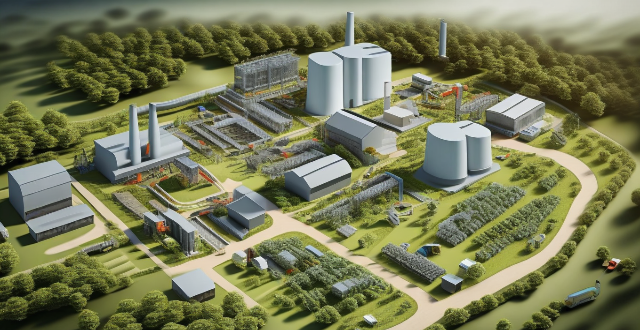
Are there any environmental concerns associated with the production and disposal of DC brushed motors ?
The article discusses the environmental concerns associated with DC brushed motors, including high energy consumption, material extraction and processing, manufacturing processes, and end-of-life disposal. It suggests potential solutions such as improved efficiency, sustainable material sourcing and processing, eco-friendly manufacturing practices, and responsible end-of-life management to mitigate their impact on the environment.

How can governments promote waste reduction initiatives among citizens ?
Governments can promote waste reduction initiatives among citizens through education campaigns, incentives, regulations, community involvement, research and development, and public infrastructure investments. These strategies aim to raise awareness, encourage sustainable practices, enforce compliance, engage communities, fund innovative solutions, and establish efficient waste management systems.

What are the benefits of waste reduction for the environment ?
Reducing waste is crucial for preserving our planet's health and ensuring a sustainable future. Here are some key benefits of waste reduction for the environment: * Reduced Landfill Space * Conservation of Natural Resources * Decreased Pollution * Climate Change Mitigation * Preservation of Wildlife Habitats * Economic Benefits
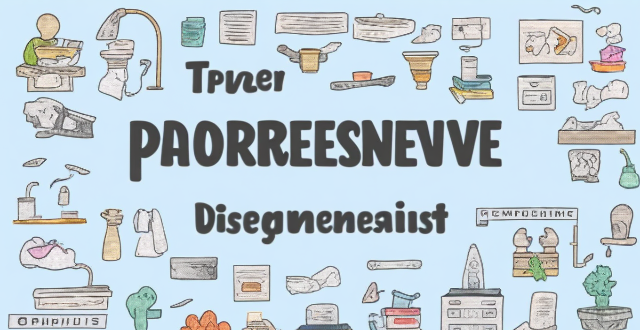
How do I properly dispose of electronic waste ?
The text provides a comprehensive guide to the proper disposal of electronic waste (e-waste), which is crucial for environmental preservation and public health. The guide explains what e-waste is, why it's a problem, and outlines steps for responsible e-waste management, including reducing consumption, reusing devices, recycling them through various methods, disposing of hazardous materials responsibly, and raising awareness about the issue. By following these steps—reduce, reuse, recycle, responsibly dispose, and raise awareness—individuals and communities can significantly mitigate the negative impacts of e-waste and make a difference.

Why is it important to recycle electronic waste ?
Recycling electronic waste is crucial for environmental sustainability, public health, and economic benefits. It conserves natural resources, reduces landfill space, prevents toxicity, creates jobs, saves costs, promotes green technology, reduces exposure to toxic substances, protects biodiversity, extends product lifespan, and raises awareness. Understanding the importance of e-waste recycling can lead to informed decisions that contribute to a circular economy and a healthier planet.

How do cultural factors influence waste reduction practices ?
The text provides an overview of how cultural factors influence waste reduction practices, highlighting the role of cultural attitudes, social norms, education, religious beliefs, economic conditions, and technological advancements in shaping waste management behaviors. It emphasizes that respect for resources, consumerism vs. conservatism, composting traditions, public awareness campaigns, community cleanliness standards, taboos around waste, environmental education, family values, role models, stewardship principles, reincarnation beliefs, interconnectedness philosophies, affordability of disposable products, recycling costs, government incentives, access to technology, digital awareness campaigns, and innovative product design are all aspects of culture that can significantly impact waste reduction efforts. By understanding these cultural dynamics, more effective strategies for sustainable living can be developed globally.

What role does waste reduction play in sustainable development ?
The article discusses the importance of waste reduction in sustainable development. It highlights the environmental, economic, and social benefits of waste reduction, including conservation of natural resources, protection of ecosystems, climate change mitigation, cost savings, job creation, innovation and efficiency, public health, education and awareness, and community engagement. The article emphasizes that waste reduction is an essential component of sustainable development and encourages individuals, businesses, and governments to take action to reduce waste.

How does one properly dispose of used PPE ?
Proper disposal of used PPE is crucial for hygiene and disease prevention. The guide outlines steps including decontamination, careful removal, designated waste container disposal, hand hygiene, and safe waste management. Different types of PPE require specific disposal methods, such as gloves, masks/respirators, gowns, and face shields. Important precautions include following manufacturer and local health authority guidelines, double-bagging if required, avoiding reuse of single-use items, and informing staff through training and signage. Proper PPE disposal helps prevent cross-contamination and protects individuals and the environment.
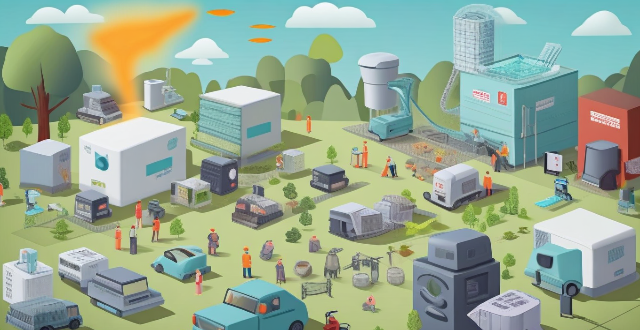
How does proper waste management aid in saving energy and reducing pollution ?
Proper waste management is crucial for conserving energy and reducing pollution. It involves strategies like composting organic waste to reduce methane emissions, enhancing recycling to save energy in manufacturing new products, preventing environmental pollution through proper disposal, promoting sustainable practices like reduce, reuse, and recycle, and supporting the circular economy model. By adopting these measures, we can move towards a more sustainable future that conserves resources and protects our planet.

How does waste reduction contribute to a circular economy ?
The transition to a circular economy is significantly influenced by waste reduction, which encompasses various strategies like reusing products, recycling materials, and promoting resource efficiency. These practices help in conserving natural resources, reducing pollution, creating economic opportunities, and fostering sustainable consumer behavior. Governments and businesses play a crucial role in driving waste reduction through policy initiatives, technological innovations, and sustainable supply chain management. Community engagement and public awareness further support this shift towards a more sustainable economic model.

What are some innovative ways to recycle electronic waste ?
Innovative Ways to Recycle Electronic Waste Electronic waste, or e-waste, is a significant environmental concern that can be addressed through various innovative recycling methods. These include repurposing old devices, upcycling components, recycling plastics, energy recovery, designing for disassembly, regulation and education, and research and development. By adopting these strategies, we can reduce the amount of e-waste in landfills and lessen its environmental impact.
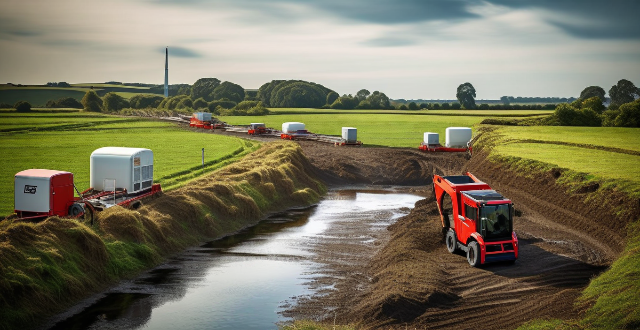
Are there any laws or regulations aimed at promoting waste reduction ?
Laws and regulations aimed at promoting waste reduction include extended producer responsibility (EPR), landfill taxes and bans, recycling targets, packaging regulations, local ordinances and programs such as curbside recycling and composting, waste reduction education campaigns, pay-as-you-throw programs, and international agreements like the Basel Convention. These measures encourage sustainable practices, reduce waste production, and promote recycling.
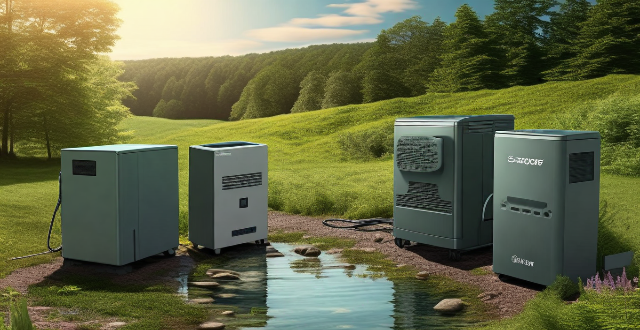
How does electronic waste affect the environment if not recycled ?
Electronic waste, or e-waste, refers to discarded electronic devices such as computers, smartphones, and televisions. Improper disposal of these items can have severe consequences for the environment, including the release of toxic chemicals into soil, water, and air. These chemicals can cause health problems for both humans and wildlife. Non-recycled e-waste also occupies valuable landfill space and contributes to soil contamination, water pollution, and air pollution. Proper recycling of electronic waste is essential to protect the environment and human health, conserve natural resources, and minimize the impact on landfills.

Can circular economy policies help reduce waste and pollution ?
Circular economy policies can significantly reduce waste and pollution by promoting reuse, recycling, and cleaner production methods. These policies incentivize businesses to design products that are easier to maintain and recycle, support sustainable business models like leasing and Product as a Service (PaaS), and encourage consumers to make environmentally friendly choices. Through such measures, the need for new raw materials decreases, energy consumption is reduced, and waste is diverted from landfills, all of which contribute to lower emissions and a cleaner environment.
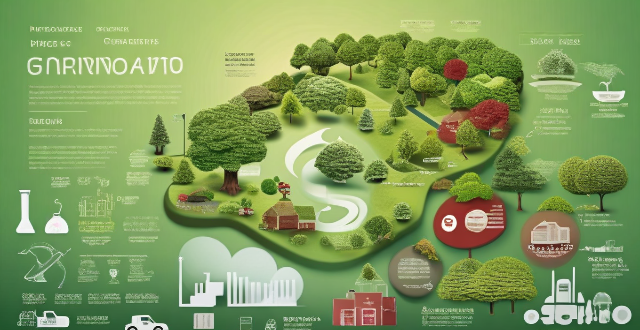
What is the impact of waste reduction on global climate change ?
This text discusses the importance of waste reduction in mitigating global climate change, highlighting how it can reduce greenhouse gas emissions, conserve natural resources, and protect ecosystems and biodiversity. It suggests ways to reduce waste such as reducing consumption, reusing items, recycling materials, composting organic waste, and supporting sustainable practices.

How do you properly dispose of chemicals to ensure safety and compliance with regulations ?
Proper disposal of chemicals is crucial for environmental and health safety. Identify the chemical, classify it as hazardous or non-hazardous, determine the appropriate disposal method, follow packaging and labeling guidelines, comply with regulations, consider alternative disposal methods, and train personnel on safety procedures to ensure safe and compliant disposal.

What are the challenges faced by developing countries in implementing waste reduction programs ?
Developing countries face various challenges when implementing waste reduction programs, including lack of funding, limited awareness and education, infrastructure and technology gaps, and weak governance and regulations. Addressing these challenges requires a multifaceted approach that involves increasing financial resources, improving education and awareness campaigns, investing in infrastructure and technology, and strengthening governance structures and regulations related to waste management.
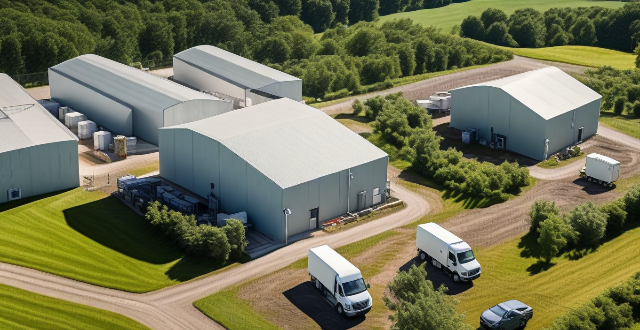
How does waste reduction affect the waste management industry ?
Waste reduction significantly impacts the waste management industry by affecting collection, transportation, processing, and disposal aspects. It leads to cost savings, optimized routes, smaller vehicles, lower energy consumption, extended landfill lifespan, increased efficiency, job losses, market opportunities, reduced greenhouse gas emissions, conservation of natural resources, improved air and water quality, increased public awareness, community engagement, and a healthier environment.

How do clean production technologies help reduce waste and pollution ?
Clean production technologies are vital in reducing waste and pollution. They achieve this through energy efficiency, resource efficiency, improved waste management, pollution control, and a holistic approach to sustainability via life cycle assessment. By implementing these technologies, industries can operate in a more sustainable manner, minimizing their environmental impact.

How can I find a reliable electronic waste recycling center near me ?
Finding a reliable electronic waste recycling center is crucial for environmental protection, resource conservation, and energy savings. Here's a summary of the steps to find one: 1. Research online using search engines and review websites. 2. Check with local government agencies and solid waste management departments. 3. Ask friends, family, and community groups for recommendations. 4. Look for certifications and accreditations like e-Stewards and R2/RIOS. 5. Visit the recycling center to assess cleanliness and organization. To properly dispose of electronic waste, backup data, remove personal information, and follow manufacturer instructions.

Can waste reduction lead to cost savings for individuals and companies ?
Waste reduction can lead to cost savings for both individuals and companies by minimizing waste in various aspects of daily life and business operations. For individuals, reducing food waste through meal planning and proper storage, minimizing energy consumption with energy-efficient appliances and water conservation, and reducing unnecessary spending through secondhand shopping and repairing instead of replacing can result in significant cost savings. Companies can also benefit from waste reduction by optimizing production processes with lean manufacturing techniques and resource recovery, improving logistics and supply chain management through just-in-time inventory and efficient packaging, and enhancing energy efficiency with green building design and employee training. Overall, waste reduction is a crucial aspect of sustainable living and business practices that can lead to cost savings while contributing to environmental sustainability.
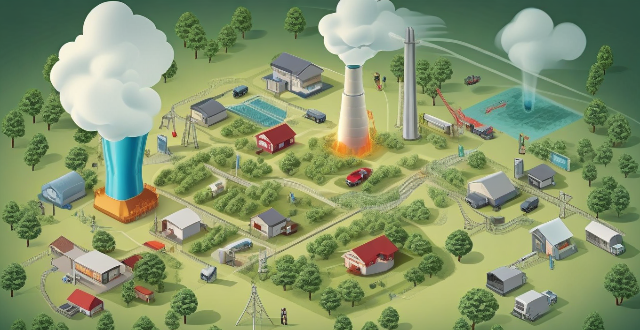
What is the relationship between waste reduction and energy conservation ?
The article discusses the relationship between waste reduction and energy conservation, highlighting their importance in promoting sustainable development. Waste reduction strategies such as recycling, composting, reusing materials, and reducing packaging conserve natural resources, reduce landfill space, and lower greenhouse gas emissions. Energy conservation measures like using energy-efficient appliances, improving insulation, and promoting renewable energy sources lead to lower energy costs, reduced greenhouse gas emissions, and promote sustainable development. The practices are interconnected, with recycling saving energy, composting reducing energy use, reducing packaging saving energy, energy-efficient appliances reducing waste, and promotion of renewable energy sources conserving energy and reducing waste.
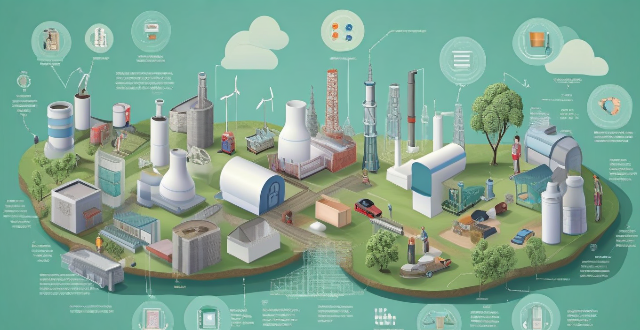
How can governments regulate the use and disposal of harmful chemicals ?
Governments can regulate the use and disposal of harmful chemicals through legislation, education and awareness programs, and enforcement and monitoring. Laws and regulations should cover all aspects of chemical management, including registration, labeling, restrictions on use, safe handling, waste management, and penalties for non-compliance. Public education campaigns and training programs can help businesses and consumers understand the risks associated with harmful chemicals and how to safely handle and dispose of them. Regular inspections and audits can ensure compliance with laws and regulations, identify potential hazards, and verify that proper safety measures are in place. Reporting and record-keeping requirements can also help government agencies monitor chemical management practices and ensure compliance with regulations.

How sustainable is the current model of the Double 11 Shopping Carnival, considering issues like overconsumption and waste ?
The Double 11 Shopping Carnival, also known as Singles' Day, has become one of the world's largest online shopping events. Originating in China, it is held annually on November 11th and has grown exponentially since its inception by e-commerce giants like Alibaba and JD.com. However, the sustainability of this massive sales event is being questioned due to concerns over overconsumption and waste. Overconsumption is a major concern during the Double 11 event, with heavy marketing campaigns leading to impulse buying and consumers purchasing items they do not need. The deep discounts often encourage shoppers to buy more than they originally intended, contributing to a culture of overconsumption. Additionally, the environmental impact of the event is significant, with the production and shipping of goods consuming vast resources and energy. The surge in packaging and delivery services significantly increases greenhouse gas emissions and plastic waste. Waste issues are also prevalent during the Double 11 event. Many products are over-packaged to protect them during shipping or to appear more appealing, leading to increased waste. Some packaging materials are non-recyclable or difficult to recycle, adding to environmental concerns. A high volume of returned items results in wasted resources and additional waste from reverse logistics. Fast fashion and low-quality electronics sold during sales often have short lifespans, leading to earlier disposal and waste. However, there are attempts at sustainability during the Double 11 event. Some companies are using biodegradable or recyclable packaging to reduce environmental impact. There is an increasing number of sustainable and ethical brands participating in Double 11, promoting greener consumption. E-commerce platforms run campaigns to educate consumers about sustainable choices and the importance of responsible consumption. Initiatives to recycle packaging and old goods are being implemented to mitigate waste issues. In conclusion, the current model of the Double 11 Shopping Carnival raises valid concerns about overconsumption and waste. While the event drives significant economic activity and consumer enjoyment, steps towards greater sustainability are crucial for its long-term viability. Balancing commercial success with environmental responsibility is essential for the future of not just Double 11 but e-commerce as a whole.

What are some innovative technologies being used for waste reduction ?
Innovative technologies are being developed to address the critical issue of waste reduction, including anaerobic digestion, recycling and upcycling, composting, incineration with energy recovery, zero waste practices, IoT and smart waste management, circular economy models, and biodegradable and compostable materials. These solutions aim to minimize environmental impact and promote resource conservation.
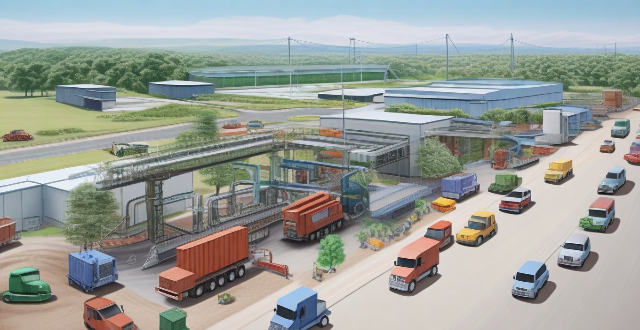
What is the process of electronic waste recycling ?
Electronic waste recycling is a systematic process that involves the collection, transportation, sorting, and processing of discarded electronic devices to recover valuable materials, reduce environmental pollution, and minimize the impact on human health. The process includes setting up collection centers, transporting e-waste using specialized vehicles, manual dismantling, shredding and separation, chemical treatment, refurbishing and resale, landfilling, and incineration. The benefits of electronic waste recycling include resource conservation, energy savings, environmental protection, and job creation.

Are there any environmental concerns with the disposal of zinc-carbon batteries ?
Zinc-carbon batteries, widely used in everyday devices, pose significant environmental concerns due to the presence of hazardous materials and disposal challenges. To mitigate these concerns, it is recommended to educate the public, improve recycling infrastructure, and support research and development of alternative battery technologies.

How can I properly dispose of my old electronics ?
The text provides a comprehensive guide on the proper disposal of old electronics, emphasizing the environmental impact and potential hazards associated with e-waste. It outlines steps to identify, evaluate, donate, resale, or recycle electronic devices through city programs, manufacturer trade-in schemes, specialized recyclers, and DIY disassembly. The guide also stresses the importance of safety precautions during handling and concludes by highlighting the responsibility in managing e-waste responsibly for environmental and personal safety reasons.